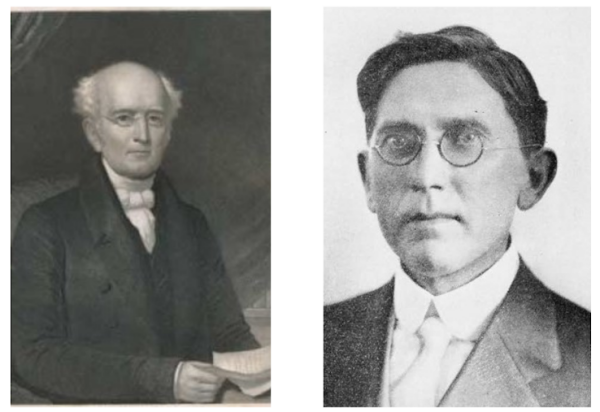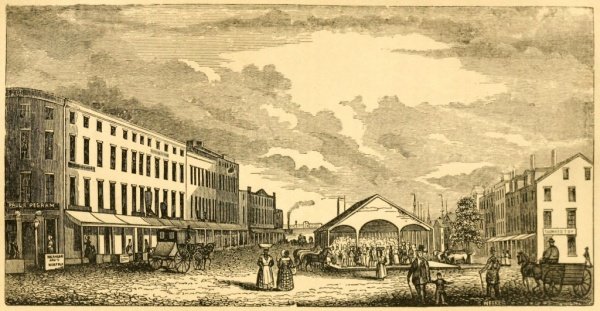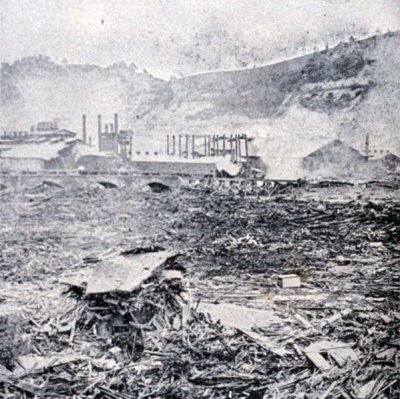Receive our blog posts in your email by filling out the form at the bottom of this page.
Among the “Homiletical” and “Miscellaneous Paragraphs” found in James W. Alexander’s posthumously-published Thoughts on Preaching (1861), one may discern a number of interesting reflections on his father, Archibald Alexander. He had previously authored the standard biography of his father, The Life of Archibald Alexander, D.D. (1854). These reflections, however, were collected separately from James’ private journals by his brother, Samuel D. Alexander, in the preparation of Thoughts on Preaching, and they reveal the deep appreciation he had of father — his pastoral genius, his personal counsel and his spiritual gifts.
§ 7. On Composing Sermons. — Notes on Conversations with J.A.A. — My father says a man should not begin with making a plan. Should not wait until he is in the vein. Begin, however you feel; and write until you get into the vein — however long it be. 'Tis thus men do in mining. Yon may throw away all the beginnings. Men who write with ease think best pen in hand. This applies to sermons, and also to books. It might be well to write a sermon currente calamo, and then begin again and write afresh (not copying, or even looking at the other, but), using all the lights struck out in the former exercise [pp. 3-4].
More generally still, avoid all that brings the speaker's personality before the hearer. A better model than our honoured father, in this, there could not be [p. 25].
In delivery, learn to know when to dwell on a point; let the enlargement be, not where you determined in your closet it should be; but where you feel the spring flowing as you speak — let it gush. Let contemplation have place while you speak.
For this, pauses are all important. Thus Rob. Hall preached. Thus my beloved honoured father, above all men I ever heard; his eye kindled, his face was radiant; he forgot the people; and as he was rapt in contemplation, he thought aloud.
…The best written discourse of my father is no more to his best preaching, than a black candle is to a burning flame [pp. 28-29].
I perceive my father was right, when he advised me to write my first draught current calamo, without any plan, with absolute abandon; giving free scope in every direction whenever a vein was struck, and reserving the particulars for the copy [p. 30].
§ 66. My Father. — My dear and honoured father has some excellencies as a writer, which I did not value at a proper rate when I was younger. He goes always for the thought rather than the word; and is never led along by the bait of fine language or the course of figures. I am led to think that a man must early in life make his election between these two kinds of writing, and that I have fallen into the inferior one: though I am regarded among my friends as a simple writer.
Another remarkable quality of my father, is his going for truth and reason, rather than for authority. This is the more remarkable, as he has been one of the greatest and most miscellaneous readers I ever knew; has had the most extensive knowledge of books, and the most wonderful memory of their contents, so that I have often known him to give a clear account of works which he had not seen for forty years; and yet how seldom does he make citation! The train of his thoughts is all his own, with a thorough digestion in his own mind, and reference of all things to their principles. Hence he is original in the best sense; which superficial readers would not admit, because his style had no salient points, or overbold expressions.
I attribute this in some degree to the fact that almost every day of his life, known to me, it was his habit to sit alone, in silence, generally in the twilight, or musing over the fire, in deep and seemingly pleasurable thought. At such times he was doubtless maturing those trains of reasoning, which he brought out in his discourses; and this may account for his extraordinary readiness at almost any time, to rise in extemporaneous address [p. 55].
Dr. [John M.] Mason used to say that all his theology was from [John] Owen on the Hebrews, and my father often remarked, that with all Owen’s power, erudition, and originality, he never deviated in his theology into any thing eccentric or hazardous [p. 501].
My father used to say one should read “Owen’s Spiritual Mindedness” once a year. I add his “Forgiveness of Sin;” and his “Mortification of Sin” [p. 502]
My father used to say to me: Think long and deeply on your subject, and as if nobody had ever investigated it before. I did not then know what he meant. One of the chief uses of writing sermons is, that it keeps one a-thinking. Then pen seems to recall the thoughts. Some cannot think without it; which is bad — very bad. This is all a matter of habit. The greatest other use of writing is, that the matter is preserved. For I will not include correctness, and polish of style, &c., which can be fully obtained by the other method [p. 514].
One can picture the father and the son, the mentor and the pupil, at the fireside, sharing contemplative moments, or wisdom acquired from experience. It is mentioned more than once in James’ biography of his father how students would learn from the teacher at the fireside and in his study. These personal recollections and reflections speak volumes about both men, and of lessons learned by the son. We are grateful for the fact that these private journal entries were collected and published after the author’s passing. These fireside reflections from the pen of Archibald Alexander’s son shine brilliantly indeed.

































